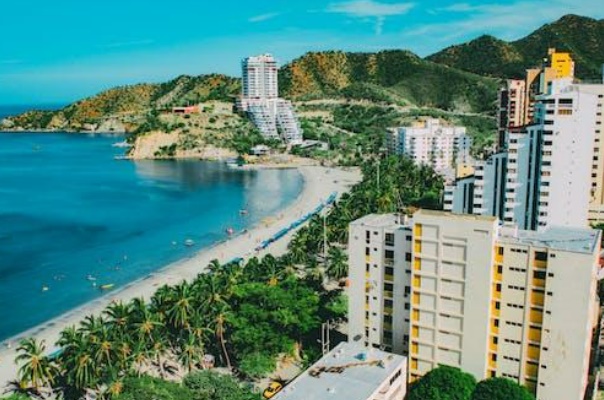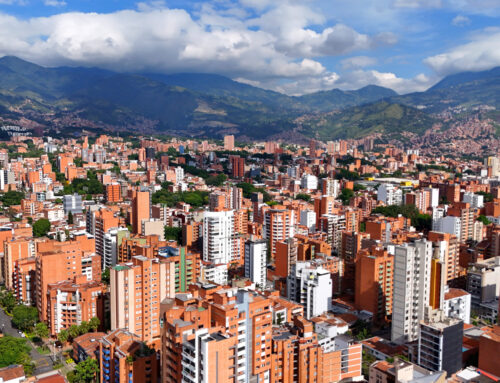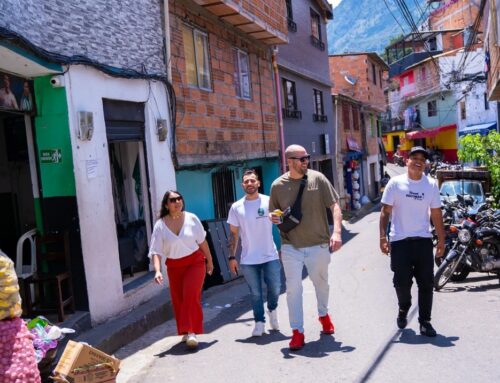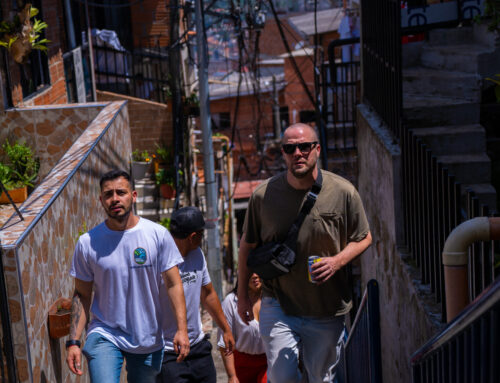
When planning any international trip, one thing that usually comes up is the safety of the country you’re planning to visit. In the case of Colombia, some people associate it with other South American countries that still have high crime rates. There’s also the matter of the country’s own history of drug trafficking and associated violent crimes; even though those things are mostly in the past, they still affect the way visitors perceive Colombia.
If you’re wondering whether it’s safe to travel in Colombia, the short answer is “yes”. Violent crime rates have dropped drastically since the height of the drug cartels, and some of the country’s major cities are actually safer than certain US cities. For example, people going on Medellin tours are actually safer than they would be in Baltimore or Detroit. That being said, there are still areas that aren’t so safe to travel through, and petty crimes could be an issue wherever you go. However, this is also true for virtually any city in the world, whether you’re talking about first-world countries or underdeveloped nations. With a few common-sense precautions, you can stay safe in Colombia and enjoy all of your travels without interruption.
Are there dangerous diseases in Colombia?
When traveling to some countries, it’s recommended (or even required) to get certain vaccinations to protect against infectious diseases. As far as Colombia is concerned, the decision is yours whether or not to get additional vaccinations. If you want to be extra cautious, you can make sure you’re up-to-date on vaccines like tetanus, hepatitis, shingles, measles, etc. However, most people who travel to Colombia won’t have an issue with any of these diseases, even if they don’t have current vaccinations for them.
If you’ll be headed to really remote areas, it is recommended to consider the risk of dengue fever and rabies. Dengue is more common in rural parts of the country, so preventative medication could be a good idea. Rabies is transmitted by animals (both domesticated and wild), so if you’ll be around livestock or wild animals you might want to think about getting a rabies shot as well.
In general, there isn’t a strong need to take health precautions when traveling to Colombia. The main risks are for tourists who will be spending time in rural areas, so take that into account when planning your itinerary.
Common crimes in Colombia
This country’s past is full of violence, thanks in large part to the infamous exploits of Pablo Escobar and the Medellín Cartel. There have also been other drug cartels that were (and still are) active in the country, as well as Communist factions, guerilla movements, and more. However, conflicts that once enveloped parts of the country have become much less severe. Even though some rural areas are still unsafe for both residents and visitors, the vast majority of Colombia isn’t directly affected by them.
Beginning in 2002, Colombia’s overall crime rates have decreased steadily almost every year; at this point, they’re the lowest they’ve ever been in the past 20 years. Even though crime hasn’t disappeared, it’s just a fraction of what it was during the last few decades of the 20th century.
If you’re visiting the country as a tourist, you probably won’t go too far off the beaten path. The biggest problems in most of the tourist-friendly areas are things like scams and pickpocketing, and maybe some illegal drug use (especially after dark). This isn’t to say that crimes that people actually worry about, like terrorism, kidnapping, or murder, don’t happen in Colombia anymore; it’s just that these almost always take place in rural areas, far away from where tourists prefer to visit. If you’re worried about crime in Colombia, just keep this in mind: this country is actually quite safe compared to many others, so you shouldn’t let fear discourage you from discovering what Colombia has to offer.
Tips for staying safe in Colombia
Here are a few useful tips for anyone who’s traveling to Colombia.
- Avoid wearing expensive clothes or flashy jewelry; they’re pretty much a neon sign for petty thieves.
- Don’t be careless with valuable belongings like smartphones, cameras, binoculars, etc. If a pickpocket sees you with something they think is valuable, they could follow you in the hopes that you’ll set it down for a few seconds, giving them the chance to run off with it.
- When carrying around cash, cards, or IDs, make sure they aren’t just tossed into a purse or backpack; a fanny pack or cash belt would be much more secure.
- Make copies of your IDs, credit/debit cards, and passport in case any of them get stolen or lost.
- Put luggage locks on suitcases and backpacks, and securely store your valuables at the hotel or hostel.
- Avoid exploring at night; if you do, make sure you’re in well-lit public areas.
- If possible, avoid traveling or exploring alone; having someone else with you makes you less of a target for petty crime.
- Research exchange rates, and familiarize yourself with the average costs of common items. This will help you avoid basic scams like “gringo pricing”, where vendors upcharge tourists because they think the gringos won’t know the difference.
- If you take out cash from an ATM, do it at a bank; this will significantly lower the risk of having your card number stolen.
If guided tours are on the agenda, they could be a great way to enjoy the cities you visit more safely. For instance, people who book Medellín tours can explore the city’s most iconic neighborhoods without worrying about accidentally wandering into a more dangerous area. Just like with most cities, those in Colombia have both safe and unsafe parts; a tour guide will let you see the highlights, and avoid potentially hazardous spots.
Colombia is a great place for tourists who value safety
There may still be some crime in Colombia, but the same can be said for any country in the world. If you want to visit this vibrant country, don’t be held back by safety concerns; as long as you follow recommended safety tips, you should be able to enjoy your dream Colombian vacation.




